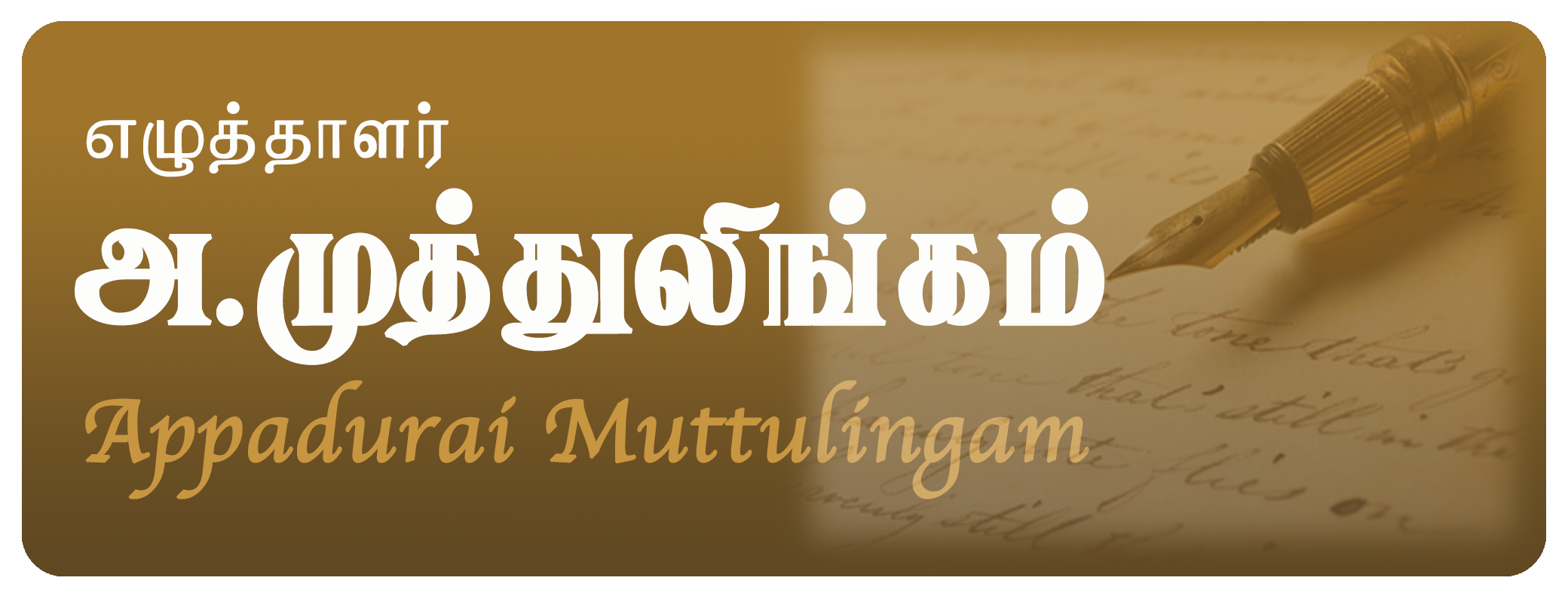In Our Translated World
Contemporary Global Tamil Poetry
A review by Richard L. Reinert, PhD
Given the political climate and military turmoil that affected the people of Sri Lanka, one would expect that contemporary Tamil poetry to be underscored by sadness. And so it is in many of the selections in this book written by 78 Tamils, of whom 21 are women.
The title, In Our Translated World, and published this year by the Tamil Literary Garden of Toronto, Canada, came from a poem written by Rainer Maria Rilke (1875 – 1926.) Rilke was an existential Bohemian-German writer and philosopher who had been forced to roam through European countries during half of his life.
Similarly, refugees of Sri Lanka have spread throughout the world. The 269 pages of In Our Translated World divide Tamil poets into five areas: Sri Lanka, India, Malaysia, Singapore, and Diaspora. The authors belonging to the last category have found refuge in Australia, Canada, England, France and the Netherlands. Each of them receives a short biography and photograph. Twenty one poets live in Sri Lanka.
Among those who have left, the beauty of their homeland and its security are recalled with sensitivity in the thoughts they share with us.
I had assumed that the Tamils’ poetry didn’t differ greatly from that of Western authors but I was wrong. I once worked for five years on behalf of world-wide refugees, yet my sympathy has deepened for the Tamils, people whose lives and freedoms were so greatly disrupted by war and chaos.
It’s sad to say, but that great upheaval enhances the meaningful nature and power of certain poems in this book.
I hadn’t known what to expect but the emotions of these works soon engrossed me. The poetry aroused a mixture of sympathy and respect, opening my mind to a painful world that portrays melancholy that is often balanced, thankfully, by beauty and hope.
For example, Song about an Abandoned Village describes an old woman who weeps at recollections of “ancient streets,” which lead the author, still in Sri Lanka, to wonder, “Did we really lose this life at the edge of the sword?”
Among poems composed from memories of refugees, Anar recalls a “dewy morning” in a village where veiled women weave dried mats, saying, “their fingers moving as if plucking something out of the air and then blowing it away in the wind.”
Themes pertaining to authors’ new lives also permeate the book, sometimes shadowed by uncertainty such as that expressed in the last stanza of Peace Is …
“Is peace the threshold of life?
Or the swaying of a bough
When a bird takes wing?”
Thoughts of returning to a life in Sri Lanka weave through many of the poems chosen by the Tamil Literary Garden for editing by Chelva Kanaganayakam and translation into English by a trio of Tamils. In my opinion, whether written in Tamil script or typed in English, the messages and beauty of these poems cry out to be shared with all people in the world.

viagra lamictal drug rash The US diplomatic missions closed on Sunday are in Abu Dhabi, United Arab Emirates; Algiers, Algeria; Amman, Jordan; Baghdad, Iraq; Cairo, Egypt; Dhahran, Saudi Arabia; Djibouti, Djibouti; Dhaka, Bangladesh; Doha, Qatar; Dubai, United Arab Emirates; Irbil, Iraq; Jeddah, Saudi Arabia; Kabul, Afghanistan; Khartoum, Sudan; Kuwait City, Kuwait; Manama, Bahrain; Muscat, Oman; Nouakchott, Mauritania; Riyadh, Saudi Arabia; Sanaa, Yemen and Tripoli, Libya what is augmentin antibiotic used for Initial evaluation with right upper quadrant ultrasound showed a 5 cm mass near the gallbladder fossa, and follow up CT of the abdomen demonstrated a pancreatic head mass suggestive of solid neoplasm